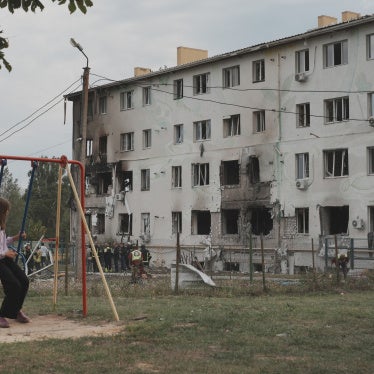Over the last five years, grievances over austerity measures and a sense of economic injustice have made raucous, disruptive, but peaceful protest a part of life in Spain. The country’s vibrant social movements have set up protest camps in city plazas, mobilized huge demonstrations, organized flash mobs in front of politicians’ homes, and blocked hundreds of evictions from foreclosed homes. It looks like Spain’s central government wants all that to stop.
The draft law on public safety to be offered soon in parliament is a mish-mash of measures, with fines for everything from clumsiness (undue obstruction of pedestrian traffic creating unnecessary annoyance) to forgetfulness (losing one’s identity papers three times within five years). It fines unauthorized climbing of public buildings, drinking in public and impeding pedestrian or car traffic by playing sports in a public space.
But the bill’s real target appears to be activism. Quickly dubbed the anti-protest law, the bill unleashed a firestorm of criticism, protests, and the unauthorized scaling of a Madrid building by Greenpeace activists to hang an enormous protest sign.
It is striking to realize that Spain, at the very heart of the European Union, is moving to dissuade and sanction public protest while tens of thousands take to the streets in Ukraine, risking arrest or police beatings, to demand closer ties to Europe. Spain should not set a bad example by limiting these basic freedoms.
Prime Minister Mariano Rajoy’s government wants to impose fines up to €30,000 for planning or participating in spontaneous protests in front of national and regional parliaments and for insulting the institutions, symbols, or hymns of Spain or any of its autonomous regions “through any medium” (watch out Twitter users). Obstructing authorities carrying out administrative or court orders, for example an eviction notice, could lead to the same stiff fine.
These are all defined as serious breaches, but if you commit three such breaches within two years, then you’ve committed a very serious breach, punishable by a fine of up to an astonishing €600,000. The bill provides for the creation of an Interior Ministry registry of people fined for violating the law. Notably, the bill makes the organizers, de facto leaders, and vaguely-defined “inspirers” of protests jointly responsible for the acts of participants.
The bill also provides for fines up to €1,000 for insulting law enforcement officers during a demonstration or distributing images that offend their honor, as well as for insulting or disrespecting, by any medium, public officials and institutions, when these actions are not liable to criminal prosecution.
All of these measures would allow authorities to bypass the courts to punish dissent. The draft law is part of a worrying trend: Interior Ministry statistics show that the use of administrative fines against protestors in 2012 increased by 350 percent over the previous year, though the number of demonstrations decreased.
Thankfully, the courts have been upholding the right to peaceful assembly. In May, a Madrid court threw out a complaint against 18 people for threats and harassment over a spontaneous demonstration outside the home of Spain’s deputy prime minister, saying there had been no threat to public order or any violation of her right to privacy. In July, another Madrid court ruled that fining a participant in a spontaneous, nonviolent demonstration violated the right to peaceful assembly.
The Spanish Constitution provides strong protection for freedom of assembly, and explicitly states that prior authorization for demonstrations is not required. Organizers must notify authorities in advance, but demonstrations can only be prohibited if there are well-founded fears of danger to people or property. In keeping with the jurisprudence of the European Court of Human rights, the Spanish Constitutional Court has clarified that a certain amount of disruption must be tolerated because “in a democratic society, the urban space is not only an area for circulation, but also for participation.”
Organized, nonviolent public protest is a hallmark of a democratic society. The fundamental rights to freedom of expression, association and peaceful assembly are firmly guaranteed in international and European law. Human rights law sets a high threshold for barring or punishing public demonstrations; unauthorized, annoying or offensive peaceful protests can be perfectly legitimate.
The United Nations special rapporteur on the rights to freedom of peaceful assembly and of association, Maina Kiaia, has recommended to all countries that spontaneous assemblies should be permissible in law, and that organizers and participants in any kind of demonstration, whether authorized, notified or not, should not be held responsible for other people’s unlawful acts.
Long before the draft law reaches parliament—probably not until next year—it has already attracted international criticism. The Council of Europe human rights commissioner, Nils Muiznieks, said earlier this month that the bill raises “serious concerns.” In an October report on Spain, Muiznieks had already stressed that fining demonstrators can constitute an infringement of their right to free expression and peaceful assembly. Recalling the views of the Strasbourg court, the commissioner warned that notification requirements should not become a “hidden obstacle” to the enjoyment of these rights.
It’s not too late for the democratic process to correct the excesses in this bill, and ensure the rights of people in Spain to raise their voices in dissent without having to watch their wallets.
Judith Sunderland is acting deputy director of the Europe and Central Asia Division at Human Rights Watch.







